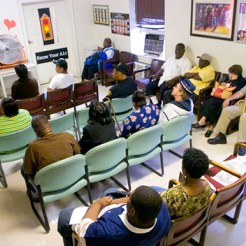Bravery
I have a character in the short story ShutEye who gives her life for a love she knows she can never have, because it’s the right thing for the greater good. There’s a character in Best Shot (being shopped) who will do anything to get the right photo.
These characters are trivial, flickering shadows in comparison with the real ones. On this Memorial Day weekend there are the obvious ones who fought and died, some knowing their actions would certainly kill them, to save others. The young and the idealistic are great for cannon fodder (said the cynical ex-soldier) because we believed in the true rightness of our cause. The brave are a category apart from that: they are willing to sacrifice themselves to save or help others. For examples, look no further than the American Congressional Medal of Honor stories. Every war has their heroes, from Afghanistan & Iraq to the Vietnam War, back through the Korean conflict and of course World Wars One and Two. And every country has its fallen who died bravely for their military cause.
Yes, one can argue whether the war was justified, or served its purpose in the most horrible of methods. But this is about personal bravery, not the religion- and drug-fuels acts of cowards and terror-mongers. The same Medal of Honor rolls tell the stories of bravery during what they call the “Indian Wars,” which today the world (excepting the current US administration) would call “genocide.” These men were, however, brave in their actions, if not the moral righteousness that history best describes.
Bravery is without border, without nationhood. It’s a person deciding to do the right thing as they see it.
This weekend we have two more recently fallen, and another seriously wounded, protecting their country from enemies domestic. Without uniforms, without preparation, without patriotic pep talks or camaraderie. Bravery comes from within, and the ‘spur of the moment’ comes in part from purity of thought. Neither were there under orders, of with a unit. Their bravery was as true and real as any from the Congressional rolls of recent decades.
Friday night a domestic terrorist apparently tried to attack two women in hijabs on a commuter train in Portland.
- Rick Best, a military veteran;
- Taliesin Myrddin Namkai-Meche, a young man with as far from a military training or mien as possible; and
- Micah Fletcher, a poet and college student who’s written on the subject of hatred and social justice.
If Congress can honor a Arnold Palmer, a golfer, with the Congressional Gold Medal, it certainly, at a very minimum, honor these three men for their service to this country, fighting against terror.

 My current WIP has a cast of characters, a bunch of whom are all first seen by my POV character in a room together. My first draft of this was, upon re-reading, a flood of details that made the narrative not only drag, but flounder.
My current WIP has a cast of characters, a bunch of whom are all first seen by my POV character in a room together. My first draft of this was, upon re-reading, a flood of details that made the narrative not only drag, but flounder.
 I’ve got a word — augre — to describe augmented reality (as opposed to VR or virtual reality). Currently social media and news call it “AR,” which is, I think, a geeksnob way of obfuscating things.
I’ve got a word — augre — to describe augmented reality (as opposed to VR or virtual reality). Currently social media and news call it “AR,” which is, I think, a geeksnob way of obfuscating things.